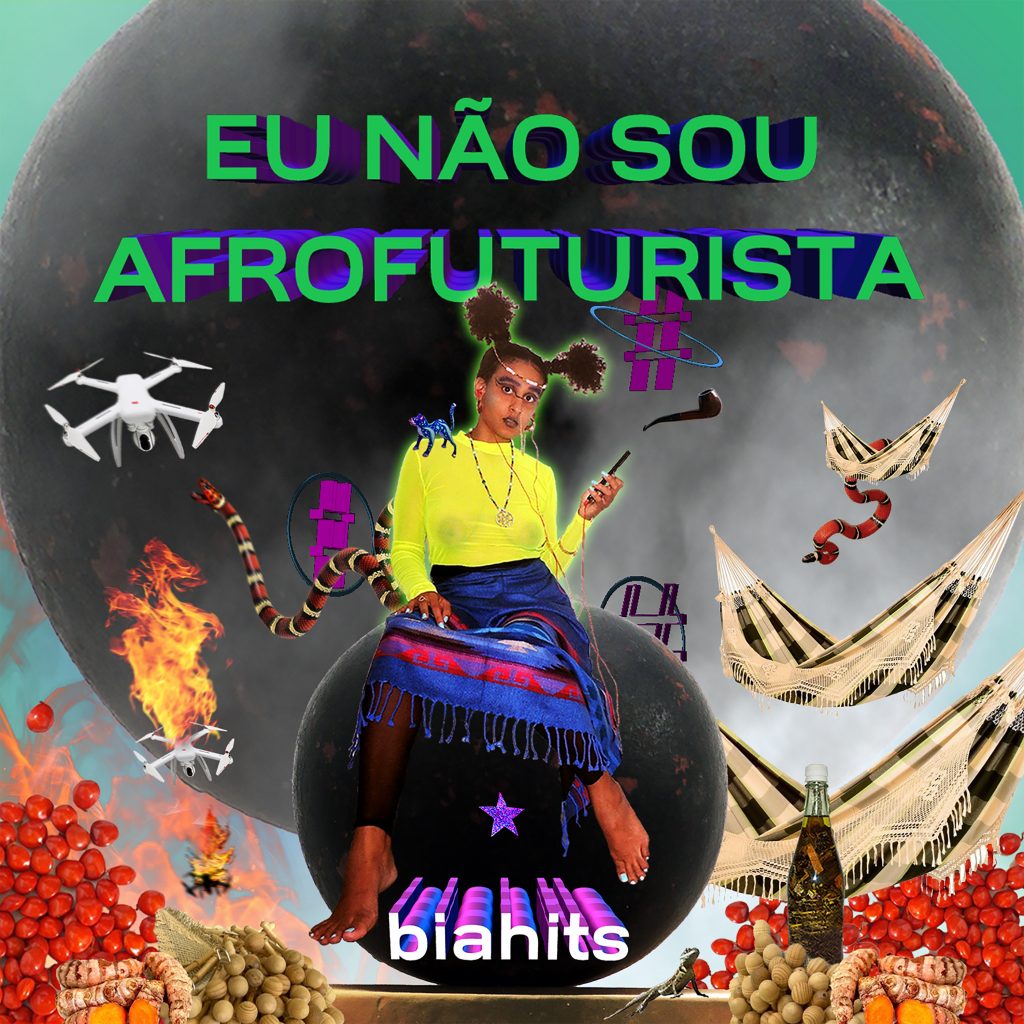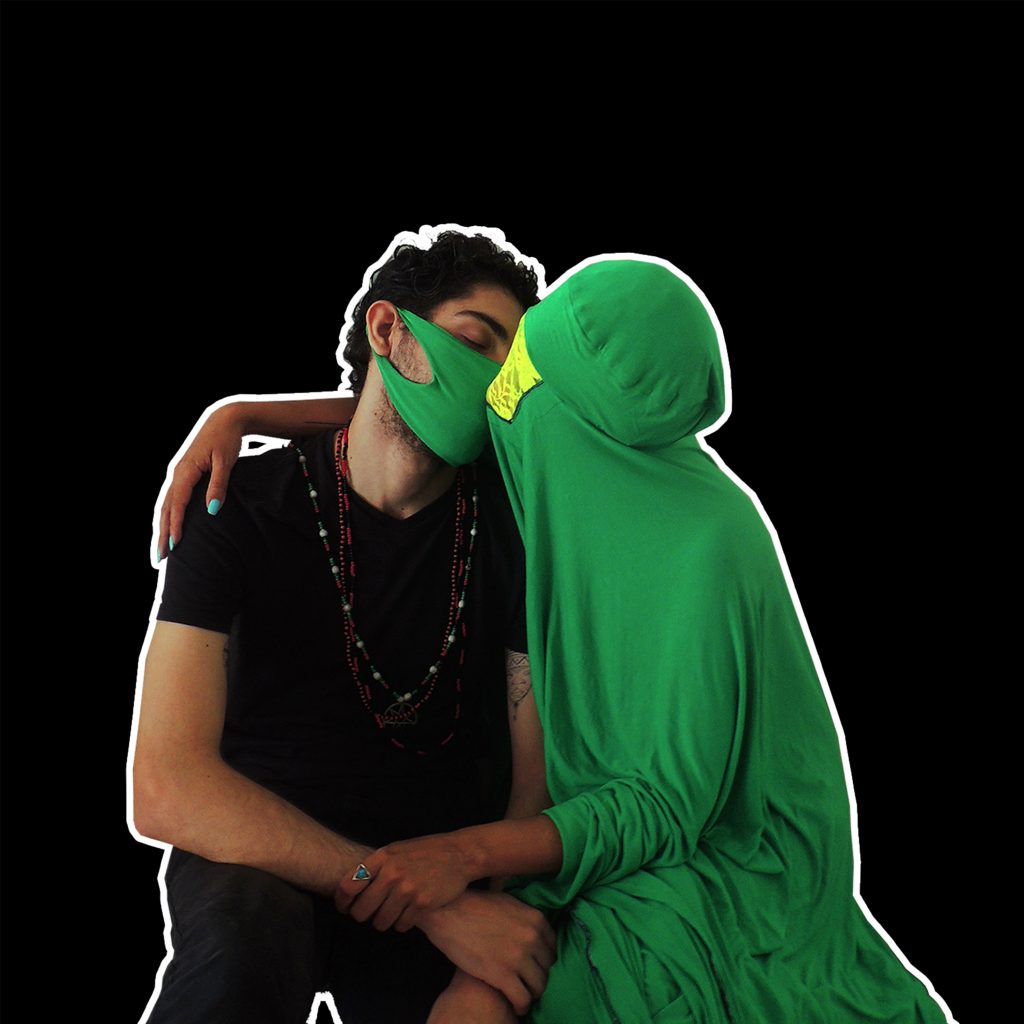
biarritzzz’s I AM NOT AN AFROFUTURIST is an amalgam of languages, that challenges sensory thresholds and defies definitions of genre. The work includes lyrics, sound, moving images, and an album cover. All these elements combined serve as a commentary on ancestrality, and its incompatibility with the Western paradigm of progress—especially it’s crono-normative regime. These ideas are made visible in the album cover, where she depicts references of her grandmother, great grandmother, and great great grandmother from Miraíma, and her great uncle from Poço da Onça, both indigenous-quilombolas territories. biarritzzz interdisciplinary approach to new media explores the interactions between the internet universe, the unending image world, and non-hegemonic bodies by taking possession of digital aesthetics, pop culture, poetry, meme politics, and video game art. Produced in partnership with Henrique Falcão, Novíssimo Edgar, Denise Nuvem, Mun Há, Anti Ribeiro, and Deize Tigrona, the web-specific audio-visual album is the result of meditations and disquiet from the pandemic. This work was originally commissioned by Pivô Satélite Program, São Paulo, Brazil in 2020.
Song Lyrics in English click here and for Portuguese click here.
biarritzzz lives and works in Recife, Brazil. A pioneering Brazilian artist in GIF art, biarritzzz draws inspiration from her childhood and self-proclaimed “nerdy” experiences in this world of epileptic moving images. Through her work, she usurps digital aesthetics by questioning the binaries of technicity versus amateurism, as well as science versus magic, in the creation of realities.

Anna L. Tsing, The Mushroom at the End of the World, 2015↩
Le Guin positions the container, rather than the spear, as the first human tool, following the writings of Elizabeth Fisher. Ursula K. Le Guin, The Carrier Bag Theory of Fiction, 1986↩
In “On Non-Scalability,” Tsing establishes that a primary critique of scalable frameworks is of their inability to maintain diversity. Taking that intrinsic flaw into account, we aim to not promote the amplification of a singular feminist framework. Anna L. Tsing, “On Non-Scalability,” 2012↩
In an interview with Jorge Cotte, Wendy Hui Kyong Chun states, “Every form of communication is based on a fundamental leakiness.” These leaks can be seen as moments of possibility. Wendy Chun, “Reimagining Networks,” The New Inquiry, 2020↩
Anna L. Tsing, The Mushroom at the End of the World, 2015; Anna L. Tsing, Roxana Fabius, Patricia M. Hernandez, Mindy Seu, “Big histories are always best told through insistent, if humble, details,” The Scalability Project, A.I.R. Gallery, 2020↩
In Glitch Feminism, Legacy Russell sees the glitch as a catalyst rather than an error, a “correction to the machine.” Legacy Russell, “Digital Dualism And The Glitch Feminism Manifesto,” Cyborgology, 2012↩
Here we are drawing from Judy Wajcman’s definition of interpretive flexibility. Wajcman describes technology’s malleable character, emphasizing that there is nothing inevitable about the way technologies evolve. Users have the power to radically alter technologies’ meanings and deployment. Judy Wajcman, TechnoFeminism p.37↩